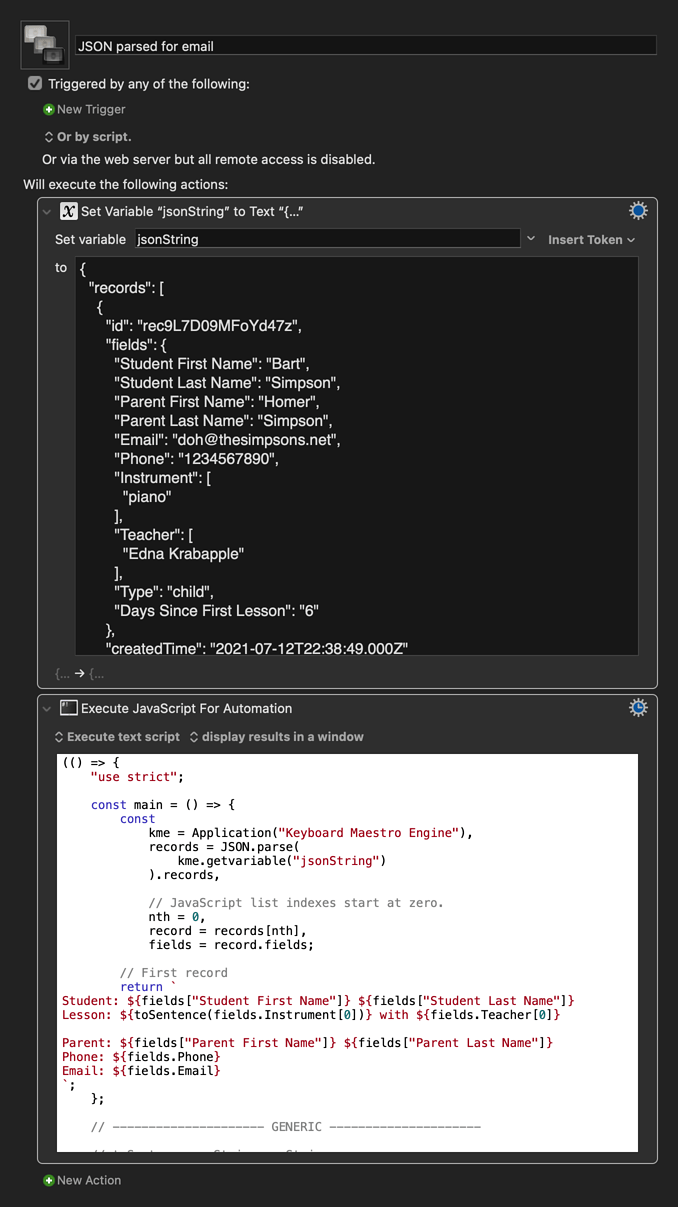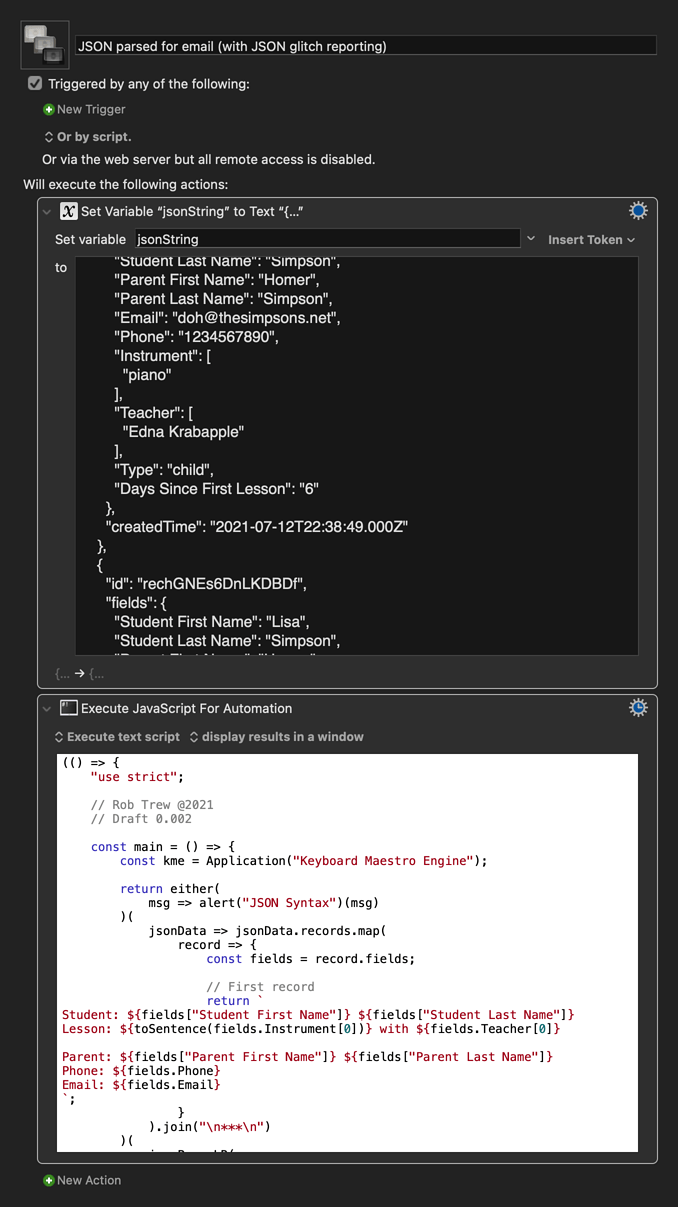My goal: take multiple JSON records, parse them into separate variables and send an email containing the variables. I've looked at using JQ but it's beyond me at the moment so I'm reaching out for assistance here.
My JSON looks like this:
{
"records": [
{
"id": "rec9L7D09MFoYd47z",
"fields": {
"Student First Name": "Bart",
"Student Last Name": "Simpson",
"Parent First Name": "Homer",
"Parent Last Name": "Simpson",
"Email": "doh@thesimpsons.net",
"Phone": "1234567890",
"Instrument": [
"piano"
],
"Teacher": [
"Edna Krabapple"
],
"Type": "child",
"Days Since First Lesson": "6"
},
"createdTime": "2021-07-12T22:38:49.000Z"
},
{
"id": "rechGNEs6DnLKDBDf",
"fields": {
"Student First Name": "Lisa",
"Student Last Name": "Simpson",
"Parent First Name": "Homer",
"Parent Last Name": "Simpson",
"Email": "doh@thesimpsons.net",
"Phone": "1234567890",
"Instrument": [
"piano"
],
"Teacher": [
"Mr. Hoover"
],
"Type": "child",
"Days Since First Lesson": "6"
},
"createdTime": "2021-07-12T22:40:42.000Z"
},
{
"id": "recbz6Y6AEUVxQQGj",
"fields": {
"Student First Name": "Bobby",
"Student Last Name": "Hill",
"Parent First Name": "Hank",
"Parent Last Name": "Hill",
"Email": "propane@propaneaccessories.net",
"Phone": "8872394789",
"Instrument": [
"piano"
],
"Teacher": [
"Cotton Hill"
],
"Type": "child",
"Days Since First Lesson": "6"
},
"createdTime": "2021-07-12T23:33:10.000Z"
},
]
}
I'd like my emails to look like this:
Student: Bart Simpson
Lesson: piano with Edna Krabapple
Parent: Homer Simpson
Phone: 1234567890
Email: doh@thesimpsons.net
So... how do I get the items from the JSON items into variables (and then compose the email - I know how to AppleScript this already) and have KM go over all of the available records until finished?

